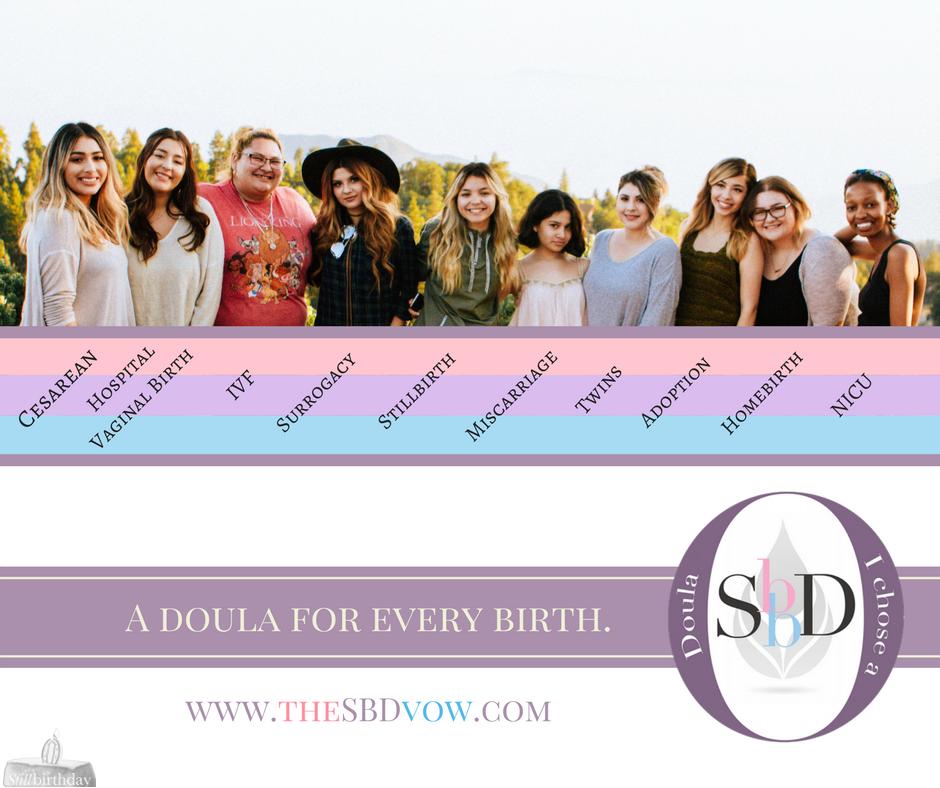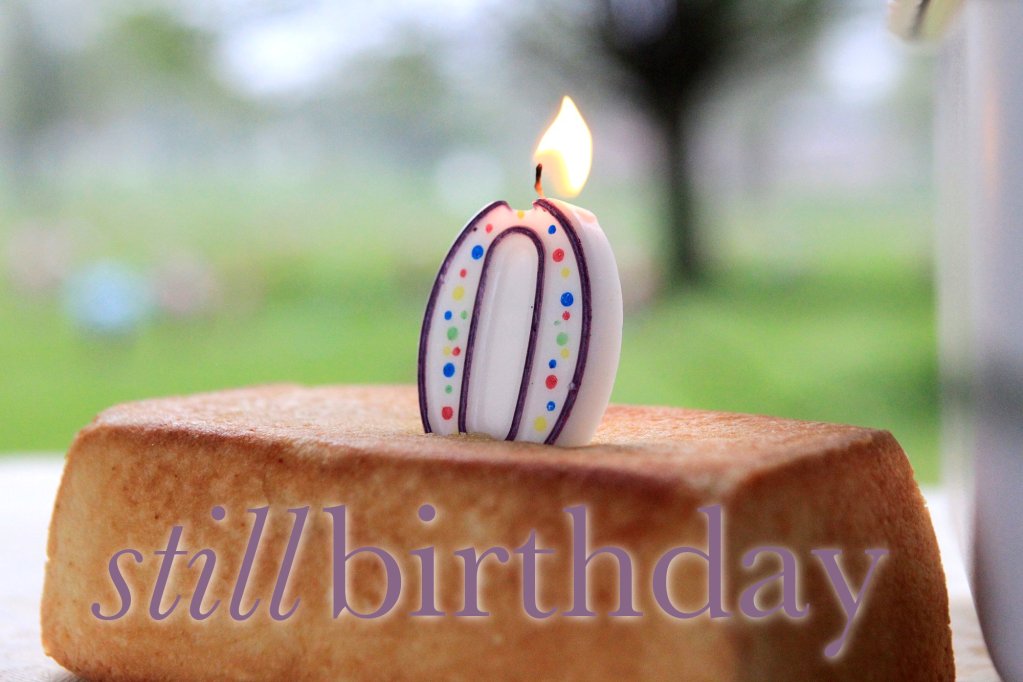Resources for Providers & Professionals
A beautiful audio for perinatal and allied healthcare
A quick note for moms:
Are you a stillbirthday mom looking to thank the birth professionals who were involved during the birth of your baby?
You can purchase a custom made card, made by Franchesca Cox of Small Bird Studios. Click the links to view:
Also:
If you’d like to let your provider know about stillbirthday, please visit our doulas & chaplains information page, which also holds a printable brochure in PDF format you can easily print and hand deliver to your local hospitals.
In Provider Care, the provider comes first,
and that’s you!
In this page, we will draw out various scenarios in which you might find yourself, as well as general support and lots of extra resources for you.
When you are a provider, and you are the mother enduring loss:
When you endure loss personally, the impact of your experience can touch every way you are connected to birth, both personally and professionally. One such way is a subsequent loss of passion for birth work. This loss of passion for birth work, can include any number of things. Here’s just 5 to consider:
- Jealousy of other mothers.
- Suppressing your story out of fear of scaring mothers.
- Suppressing your story out of fear of being invalidated, scorned, or reprimanded for “fear mongering”, “not having enough faith in birth” or “not getting over your loss.”
- Suppressing your story out of fear that it contradicts your stance on ___, which can be absolutely any single thing related in any way whatsoever to pregnancy, birth or motherhood, including but not limited to, for examples: pro-life v. pro-choice, medicalized birth assistance (how does needing a D&C impact your professional stance on hands-off birth, for example.
- Unsubstantiated but heightened fear or paranoia in labors (a kind of “fear of jinxing”).
Your journey in healing requires that you go slow, to spend time in exploring how you define your experience personally, without any boundaries set by others or even by yourself professionally. Only then can you begin to discover how your experience might integrate into your professional role in the positive, enriching and holistic ways in which it absolutely has the potential to. Spend some time here at stillbirthday looking at the resources and support specifically through the lens of the mother you are. When you are ready, you are invited to share your story, either through the main sharing page or here, at the end of this page (just scroll down). There are no expectations here, no requirements that you know, feel, say or do anything. You are free to explore your own experience authentically. You are worthy, and, you aren’t alone.
“I had been a doula for 10 years, when I gave birth to my baby in the first trimester…
“…And even at that, I was still so alone, so ill prepared…”
When you are the provider, supporting a client enduring loss:
Stillbirthday aims to provide compassion and support to all providers who are impacted by patient or client loss, including:
- doulas
- hospice workers
- leaders of pregnancy loss organizations
- mentors or counselors or chaplains
- ultrasound technicians / sonographers
- paramedic professionals
- nurses
- midwives
- doctors
- if you are a birth educator (author, teacher, social media user, or in any other capacity), stillbirthday interviewed several professionals to bring you helpful information for broaching the subject of pregnancy loss
In Provider Care, the provider comes first – and that’s you!
We do this in three parts: get support, be support, and share.
1. Get Support
You need information, support and resources both to learn how to support others well, and, to receive support and self-care for your own healing heart.
a.) Provider Care {Mentoring} Program
Mentoring resources for the professional:
Stillbirthday provides a uniquely designed significant resource for all birth & bereavement professionals in our Provider Care program.
b.) Events
- Check our events page for things you can get involved in or encourage others to.
- Our Workshop for Birth Professionals
- You can schedule an event with any of our Executive Team , including Heidi Faith, to speak.
c.) Other Online Materials
Please also utilize this list of articles that pertain to things such as compassion fatigue or other information regarding how to care for yourself as the provider:
- How to Doula in Bereavement gives you practical tools to support the family, and yourself
- Take our brief, confidential survey to share how you or your team generally responds to client/patient fetal demise.
- Check update educational information from our Official Affiliates
- Nurse.com : Good Grief (external link)
- Workingnurse.com : How to Grieve Well (external link)
- Nurses Mentoring developed by CHOP (external link)
- Sonographer Self Care by Angela Bradshaw
- Midwives can join the ACNM eMidwife Discussion Groups
- Self-Compassion article
- Obstetricians experience guilt and stress
- Medical providers grieve after making mistakes
- Jealousy in Birth Workers (we discuss additional factors in our training as well)
- Give yourself time to grieve. Whether your professional experience is one loss in your entire career, or, one loss a week, you need time to process what happened. Even if the death of a baby is a common occurance in your work, the death of a baby is not normal. Process the events so that you don’t reflect feelings of fear of death toward patients or clients who will not experience loss.
- As the provider or professional involved, you may face feelings of guilt, whether or not you provided your care to the best of your skill level and ability or not. Please, be gentle on yourself. Blame can be a natural reaction from the family. Their feelings are part of their process and they will need to work through them. You also need to work through your own feelings, of guilt, or blame. Remember that feelings of guilt or blame are secondary to the reality that a baby died. A baby died, and grief is involved – the family’s, and yours. Reading our interview with a midwife on this subject might be helpful for you.
- Homebirth Loss Awareness Day
- You will likely still reflect and assimilate the situation, whether there are feelings of guilt or not. Be sure to do this in a healthy, positive way, looking to affirm honestly the ways in which you are a good provider – and, a growing provider.
d.) Self-Care Specific
The Welcoming as a Professional
As we support families within the 5 season model: pregnancy (everything before birth), birth, the welcoming, the farewell, and the healing journey, we need to apply and enter into these same seasons for our own heart. Engaging in a Welcoming means honoring the reality of the baby, rather than compartmentalizing and distancing the reality of the baby from our own lives. How does the life and death of this baby impact your perception of your own children, pregnancy, maternal identity and professional role? Suppressing this perception does not make it go away. Engaging in this new perception allows it space to take a healthy shape into the healthiest dynamic within the relationships it impacts. For example, you may return home to have a very healing breastfeeding experience with your own baby, because the experience with the baby not alive stirred in you a perception about the joy you have toward your baby. This Welcoming is such a positive experience and can begin to grow as you sit and dialogue with trusted loved ones about the newly forming perceptions and changing relationships in your own life because of the experience in serving the family.
The Farewell as a Professional
Integrating the experience into your personal and/or professional roles can be an ongoing journey, just as the healing journey is for the family. Experiencing a farewell can be an important factor in creating the healthiest frame around the integration of the experience, limiting or preventing unnecessarily magnified integration which can lead to health problems for yourself. Your farewell can be something simple and private, it can simply be a kind of commitment or determination you make in your own heart, it can be symbolized by a ritual, such as releasing a feather or other private activity. As you have engaged with the family and learned their own cultural or religious interpretation of their event, you’ll want to be sure that you don’t fold their event into yours and unintentionally cause harm to the family.
The Healing Journey as a Professional
- Secondary Traumatic Stress (STS) and Compassion Fatigue
- Seek additional support for yourself, through our many resources here at stillbirthday, including our long term support, which is listed according to location as well as crisis hotlines, counselors by location, websites and books. Remember that you can best care for the family when you are cared for yourself.
- Take the Psychology Today Burnout Exam.
Books:
Other Simple – Ongoing – Ideas:
- Your favorite relaxation and comfort.
- Close friendship circles.
- Cocoa.
- Chiro and/or massage.
2. Be Support.
a.) Get Professionally Trained
SBD Birth & Bereavement Training
Stillbirthday provides the most comprehensive birth and bereavement training, available right from your computer.
Stillbirthday is an approved provider of continuing nursing education by the Missouri Nurses Association, an accredited approver by the American Nurses Credentialing Center’s Commission on Accreditation.
Gain 30 Nursing Contact Hours through our Birth & Bereavement training!
b.) Other Online Materials
You of course need to provide support for the mother and the family. Here are a few tips:
“I Want To Know”
Make this your mantra, in word and action.
Have our Immediate Decisions books on hand to gift to newly bereaved families.
Visit our birth plan section for ways to support the family immediately from the time of birth, helping the mother navigate her many postpartum experiences and choices, and visit our Family/Friends section for many ways that you can provide support.
Prior to loss
Prepare your environment for birth in any trimester.
- A laboring room specifically for miscarriage in the Emergency Room as well as a room especially for loss on L&D is an appropriate and realistic investment into the longterm health of your community.
- The laboring room should have resources present for the immediate experience, including items that may help identify and preserve the physical form of the baby.
- The laboring room should not have an auto-flush toilet.
- The laboring room should also have resources present for long term and follow up postpartum as well as grief support.
- Families should be privy to their personal options regarding birth in any trimester, with any level of medical support and in any outcome. This includes information regarding options they do have regarding D&C or other medically assisted birth.
- There should not be gaps or overlaps in care. These cause chasms that families fall into. Have a direct relationship with some of your local community resources, including funeral home staff, SBD doulas and social workers.
- View this free PDF from Birth Emergency Skills Training (B.E.S.T.)
During birth and/or death
- Go slow. Validate. Provide Options. Supplement Resources.
Language is Important.
- As you issue a death notification, go slow. Learn how to give the death notification to this particular family. Be aware: determine if your patient, and all present with her, is in a safe position and situation to receive the death notification. Be curious: get to eye level with the mother, rather than looming over her. Be specific: I cannot find a heartbeat, Sue. Be clear: give facial expression and body presence that show nearness, compassion, and a curiosity to listen to her response. Be ready: be ready to repeat the news. Be ready to give time.
- Words shared by mothers who found them hurtful, include: just a period, product of conception, debris, spontaneous abortion, terminating, removal, dispose of, try again, mood disorder.
- Finding a cause, which can include blame, is only part of what the family is enduring. Learn how to accept words without internalizing the message.
- Mirror the reactions the family is displaying to you regarding their experience.
After loss
- Take our brief, confidential survey to share how you or your team generally responds to client/patient fetal demise.
- Telling the mother “I’m sorry for your loss” is not a legally binding statement and does not suggest liability. Do not be afraid to say “I’m sorry for your loss.”
- hug the mother, and cry with her. Let the family mourn. Mourning is the outward demonstration of the internalized feeling of grief.
- if giving the mother time to process her experience and her choices is at all a possibility, please do so. If you are sharing the news of an impending pregnancy loss or a difficult diagnosis, don’t pressure the mother while you explain what her options may be.
- help coordinate in the immediate events – for example, if this was a homebirth, please visit our home stillbirth page
- help coordinate the longterm events – for example, if the baby has a fatal diagnosis
- ask to attend the funeral or other Farewell Celebration
- help the mother prepare for what to expect during the birth. Stillbirthday has many resources to help with this, particularly in our birth plan section, which links to things like giving the baby a bath and what to expect from the appearance of the baby’s skin.
- help the mother and family with special momentos and keepsakes. If the mother refuses to see her baby or take photos, ask if you can take photos in a nearby room, and include any willing family members. Offer other momentos such as a lock of the baby’s hair. If the family does not want these keepsakes, ask if you can store them for the family as they may wish for them at a later time.
- Don’t tell the mother, “You should have…. (called me sooner)”
- Don’t tell the mother, “Your baby…(did this to himself)”
- Don’t tell the mother, “I’m sorry you think I did something to cause this.” This is minimizing, and focuses on what you may believe to be projection, rather than the reality that her baby has died. Say instead, “I’m sorry that your baby has died. I am here, and I will help you navigate testing and find out what happened.”
- If you are or believe you may be at fault somehow, don’t dwell on that. Assure the mother that medical testing will answer those questions. Again, “I don’t know why this happened, but I am here with/for you.”
- help the mother seek medical answers for her loss if she wishes, including additional testing and perinatologist or other professional referrals
- continue with postpartum care, including physical and emotional care. Our birth plans section provides information on things like breastmilk decisions, Cesarean birth recovery, as well as how to navigate the sometimes conflicting aspects of the Farewell Celebrations and the physical postpartum healing of the mother (for example, how to plan a funeral in the event of a Cesarean birth, so that the mother can attend).
- View our “Outside Insight” section of articles for more ideas on how to support well.
- Remember, all the resources are also for your benefit. How to Doula in Bereavement gives you practical tools to support the family, and yourself.
More Practical Guidance
- Cultural Diversity in Maternity Care
- Abigail’s Footsteps offers a video demonstration of the importance of professional training
Every level professional can benefit greatly from taking stillbirthday’s birth & bereavement training program, or for a more immediate reference of additional basic tips on bereavement doula support, you can purchase our Handbook. Visit The Invaluable Bereavement Doula for more information on these resources.
3. Share
Take our brief, confidential survey to share how you or your team generally responds to client/patient fetal demise.
You also have the opportunity to submit stories and share your experiences with others. You can read these stories here, at the “Provider Care” category of stories. This can be a very healing way to let mothers know that providers also grieve the losses of those they support, and can give other professionals important insight into helpful ways to support during loss, and helpful ways to process and heal through the experiences. You can also share of your support with “rainbow/subsequent” pregnancies.
A few very important things to know when you submit a story to be published at stillbirthday:
- HIPAA is a priority. See Permitted Uses numbers 3 and 4, along with “De-Identified Health Information”. You should consider having the written consent of the mother prior to sharing your story, although it is not a requirement. These stories can be seen by mothers.
- When you submit a story, your name is omitted. It will read that it was contributed anonymously.
- Any and all names of people involved are omitted and/or altered.
- Any reference to time that can be an identifying factor (“Three months ago…”) will be omitted.
- Any reference to medical or other public facilities, or other identifying factors will be omitted.
- Additional information may be also be altered or omitted.
- If a mother believes she has identified herself in any story, and objects to its publication, it will be removed immediately.
- You can view our additional submission information.





